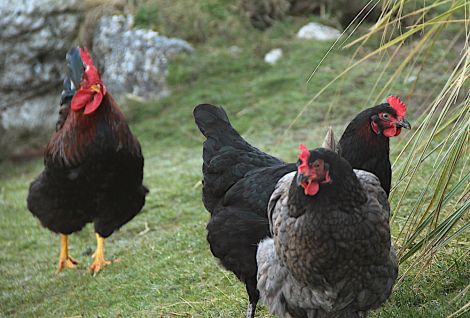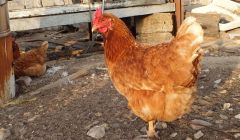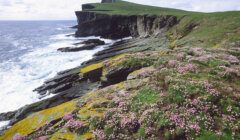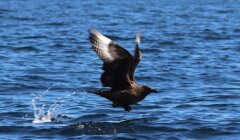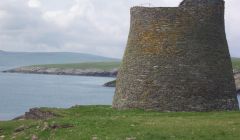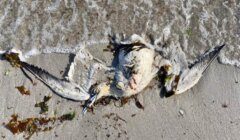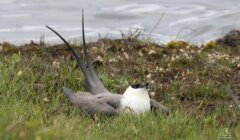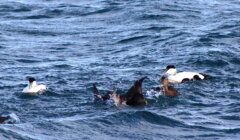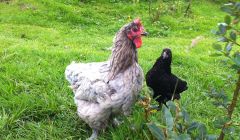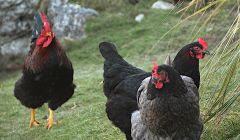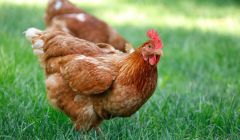Agriculture / Bird flu protection measures return following upsurge of cases
BIRD keepers are required to follow strict biosecurity measures from today (Monday) onwards after the whole of Scotland, England and Wales were declared an avian influenza prevention zone (AIPZ).
The measures are designed to help protect flocks from the threat of bird flu as the UK is faced with its largest ever outbreak, with the risk level being raised from ‘medium’ to ‘high’.
Since October last year more than 190 cases have been confirmed across the UK with over 40 of these confirmed since the start of this month.
Last week, cases of bird flu were confirmed in near Tankerness, in Orkney, and in Lewis.
During the summer thousands of seabirds died of the disease in Shetland, and across Scotland.
The measure implemented on Monday means that keepers with more than 500 birds will need to restrict access for non-essential people on their sites.
Workers will need to change clothing and footwear before entering bird enclosures and site vehicles will need to be cleansed and disinfected regularly to limit the risk of the disease spreading.
Owners of smaller numbers of poultry including chickens, ducks and geese must also take steps to limit the risk of the disease spreading to their animals.
In a joint statement, the chief veterinary officers for England, Scotland and Wales said: “The introduction of an AIPZ means that regardless of whether you keep a few birds or thousands, you are legally required to meet enhanced biosecurity requirements to protect your birds from this highly infectious disease.”
The move means:
- Free ranging birds will need to be kept within fenced areas, and ponds, watercourses and permanent standing water must be fenced off;
- Footwear has to be cleansed and disinfected and areas where birds live have to be kept clean and tidy
- Movement in and out of bird enclosures have to be minimised;
- Domestic ducks and geese have to be kept separate from other poultry;
- Birds have to be fed and watered in enclosed areas to discourage wild birds.
Become a member of Shetland News
Keepers should familiarise themselves with avian flu advice at www.gov.scot/avianinfluenza and report suspicion of disease to their local APHA Field Services Office.
The Avian Influenza Prevention Zone will be in place until further notice, and dead wild birds should not be touched unless when wearing suitable protective clothing.
Meanwhile, Public Health Scotland said that the risk to the public from the virus is very low. Properly cooked poultry and poultry products, including eggs, are safe to eat.
Become a member of Shetland News
Shetland News is asking its many readers to consider paying for membership to get additional features and services: -
- Remove non-local ads;
- Bookmark posts to read later;
- Exclusive curated weekly newsletter;
- Hide membership messages;
- Comments open for discussion.
If you appreciate what we do and feel strongly about impartial local journalism, then please become a member of Shetland News by either making a single payment, or setting up a monthly, quarterly or yearly subscription.






